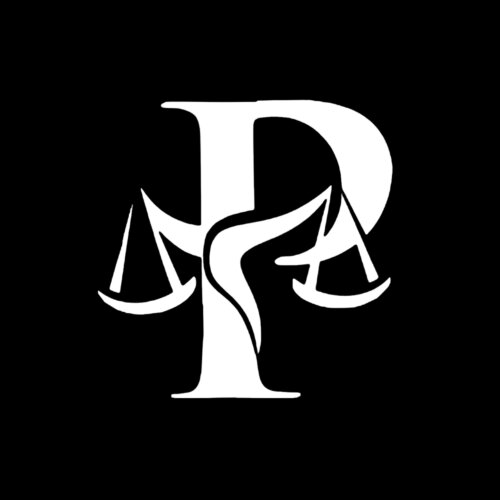Best Transportation Lawyers in Albania
Share your needs with us, get contacted by law firms.
Free. Takes 2 min.
Or refine your search by selecting a city:
List of the best lawyers in Albania
About Transportation Law in Albania
Transportation law in Albania encompasses the rules and regulations governing the movement of people and goods within the country. This involves several modes of transportation, including road, rail, air, and maritime. The legal framework is designed to ensure safety, efficiency, and fairness in transportation services. The Ministry of Infrastructure and Energy oversees the development and implementation of transportation policies, guided by the principles of sustainable development and integration with European standards.
Why You May Need a Lawyer
There are numerous situations where individuals and businesses may require legal assistance regarding transportation in Albania. Common scenarios include:
- Disputes over transportation contracts or service agreements.
- Issues related to traffic accidents or violations.
- Regulatory compliance for logistics and freight companies.
- Licensing and permitting for transportation companies.
- Litigation involving personal injury or property damage in transportation incidents.
- Challenges related to infrastructure development and land use.
Local Laws Overview
Albanian transportation laws are structured to support efficient transport networks while ensuring regulations are in place to maintain safety standards. Key aspects include:
- Road Transport: Governed by the Road Code, it includes traffic regulations, vehicle registration, and driver licensing.
- Rail Transport: Managed by the Albanian Railways, focusing on infrastructure maintenance and service provision standards.
- Air Transport: The Albanian Civil Aviation Authority oversees regulations, including airport management and airspace control.
- Maritime Transport: Jurisdiction includes licensing, safety standards, and environmental protection on international and local waterways.
Frequently Asked Questions
What are the primary regulatory bodies for transportation in Albania?
The Ministry of Infrastructure and Energy, along with the Albanian Traffic Police, the Civil Aviation Authority, and the Maritime Directorate, oversee transportation regulation.
How can I obtain a transportation business license in Albania?
Business licenses are typically obtained through the National Business Center (NBC), which requires several documents and compliance with local regulatory standards specific to your transport service.
How are traffic violations handled in Albania?
Traffic violations are managed by local law enforcement, with fines and penalties based on the severity of the offense. Legal representation can be sought if disputes arise.
What are my rights if I am involved in a traffic accident?
In the event of a traffic accident, individuals have the right to seek compensation for damages and injuries. Immediate notification to the police and obtaining a detailed accident report is crucial.
Are there specific regulations for transporting hazardous materials?
Yes, transporting hazardous materials is subject to strict regulations regarding packaging, labeling, handling, and route planning to ensure public safety.
What is the procedure for disputing a public transport fine?
Fines can be disputed by submitting a formal complaint to the relevant transportation authority or through legal representation if the fine is believed to be unjust.
How does Albania ensure the safety of its rail transport?
Rail safety is enforced through regular inspections, adherence to technical standards, and employee training programs implemented by the Albanian Railways Authority.
Can foreigners drive in Albania using their home country's license?
Tourists can drive in Albania using an international driving permit alongside their home country’s license for a limited period.
What legal aid is available for maritime transport issues?
Legal aid for maritime issues can be sought from specialized maritime lawyers and through the Ministry of Infrastructure and Energy for guidance on compliance and disputes.
What steps should I take to resolve a transportation contract dispute?
It's advisable to review the contract terms thoroughly, engage in negotiation or mediation, and seek legal counsel to represent your interests in complex disputes.
Additional Resources
For further support, consider consulting the following resources:
- Ministry of Infrastructure and Energy - for regulatory information and policy guidance.
- The Albanian Traffic Police - for traffic rules and regulations enforcement.
- The Civil Aviation Authority - for airline and airport-related concerns.
- The Albanian Railways - for rail transport information.
- The Maritime Directorate - for maritime transport compliance and regulations.
Next Steps
If you require legal assistance in transportation law in Albania, consider taking the following steps:
- Identify and document the specific issue or dispute you are facing.
- Research and contact law firms or legal professionals specializing in transportation law.
- Consult with a lawyer to explore your options and understand your rights and obligations fully.
- Engage in mediation or negotiation where applicable to resolve disputes amicably.
- Proceed with legal action if necessary, with the guidance of your legal counsel.
Lawzana helps you find the best lawyers and law firms in Albania through a curated and pre-screened list of qualified legal professionals. Our platform offers rankings and detailed profiles of attorneys and law firms, allowing you to compare based on practice areas, including Transportation, experience, and client feedback.
Each profile includes a description of the firm's areas of practice, client reviews, team members and partners, year of establishment, spoken languages, office locations, contact information, social media presence, and any published articles or resources. Most firms on our platform speak English and are experienced in both local and international legal matters.
Get a quote from top-rated law firms in Albania — quickly, securely, and without unnecessary hassle.
Disclaimer:
The information provided on this page is for general informational purposes only and does not constitute legal advice. While we strive to ensure the accuracy and relevance of the content, legal information may change over time, and interpretations of the law can vary. You should always consult with a qualified legal professional for advice specific to your situation.
We disclaim all liability for actions taken or not taken based on the content of this page. If you believe any information is incorrect or outdated, please contact us, and we will review and update it where appropriate.
Browse transportation law firms by city in Albania
Refine your search by selecting a city.









